Anger
CAUSES & EFFECTS
OF EMOTIONS

Embarrassment, Shame, and Guilt
Happiness
Fear and Anxiety
Romantic Attraction
Anger
Optimism and Self-Confidence
Stress and Tension
Sadness
Empathy and Compassion
Envy and Jealousy
Surprise and Flexibility
Emotional Self-Awareness
Loneliness
CAUSES & EFFECTS
OF EMOTIONS

Anger
Rosa Waters

Mason Crest

| Mason Crest
450 Parkway Drive, Suite D
Broomall, PA 19008
www.masoncrest.com |
Copyright 2015 by Mason Crest, an imprint of National Highlights, Inc. All rights reserved. No part of this publication may be reproduced or transmitted in any form or by any means, electronic or mechanical, including photocopying, recording, taping, or any information storage and retrieval system, without permission from the publisher.
Printed and bound in the United States of America.
First printing
9 8 7 6 5 4 3 2 1
Series ISBN: 978-1-4222-3067-1
ISBN: 978-1-4222-3068-8
ebook ISBN: 978-1-4222-8761-3
The Library of Congress has cataloged the hardcopy format(s) as follows:
Library of Congress Cataloging-in-Publication Data
Waters, Rosa, 1957
Anger / Rosa Waters.
pages cm. (Causes & effects of emotions)
Audience: Grade 7 to 8.
Includes index.
ISBN 978-1-4222-3068-8 (hardback) ISBN 978-1-4222-3067-1 (series) ISBN 978-1-4222-8761-3 (ebook) 1. AngerJuvenile literature. I. Title.
BF575.A5W38 2014
152.47dc23
2014004378
CONTENTS

The journey of self-discovery for young adults can be a passage that includes times of introspection as well joyful experiences. It can also be a complicated route filled with confusing road signs and hazards along the way. The choices teens make will have lifelong impacts. From early romantic relationships to complex feelings of anxiousness, loneliness, and compassion, this series of books is designed specifically for young adults, tackling many of the challenges facing them as they navigate the social and emotional world around and within them. Each chapter explores the social emotional pitfalls and triumphs of young adults, using stories in which readers will see themselves reflected.
Adolescents encounter compound issues today in home, school, and community. Many young adults may feel ill equipped to identify and manage the broad range of emotions they experience as their minds and bodies change and grow. They face many adult problems without the knowledge and tools needed to find satisfactory solutions. Where do they fit in? Why are they afraid? Do others feel as lonely and lost as they do? How do they handle the emotions that can engulf them when a friend betrays them or they fail to make the grade? These are all important questions that young adults may face. Young adults need guidance to pilot their way through changing feelings that are influenced by peers, family relationships, and an ever-changing world. They need to know that they share common strengths and pressures with their peers. Realizing they are not alone with their questions can help them develop important attributes of resilience and hope.
The books in this series skillfully capture young peoples everyday, real-life emotional journeys and provides practical and meaningful information that can offer hope to all who read them. It covers topics that teens may be hesitant to discuss with others, giving them a context for their own feelings and relationships. It is an essential tool to help young adults understand themselves and their place in the world around themand a valuable asset for teachers and counselors working to help young people become healthy, confident, and compassionate members of our society.
Cindy Croft, M.A.Ed
Director of the Center for Inclusive Child Care at Concordia University

Words to Understand
 evolved: Developed over a long period of time.
evolved: Developed over a long period of time.
instinct: An automatic urge to act, without thinking about it.
aggressive: Fierce or ready for violence.
mobilizes: Gets ready to do something.
integrity: The quality of being ethical, or the state of being whole.
motivate: Encourage to do something.
Western: Having to do with European and American culture and society.
suppress: Push back; put an end to.
Imagine youre walking down the street, wearing your best clothes because youre headed for a job interview. A truck roars by, swerving through a puddle just as it goes past youand now your clean, dressy clothes are soaked with muddy water. How do you feel?
Or say you tell your best friend something in confidenceand then you find out shes told your private information to everyone else in your group of friends. How do you feel?
What about if youre planning to go to a concert with your friendsbut your parents say you cant go because you have to stay home and clean your very messy bedroom instead. How do you feel then?
If youre like most people, you feel angry in all these situations. Anger is an emotional response to something that threatens our well-being in some way. Something could endanger our wellbeing in a very small way or in an enormous way; it could threaten our physical health, our happiness, or our social standing. In all these cases, the emotion thats triggered is usually anger.

Our emotions can function like caution signs, warning us to pay attention and be careful.
WHAT ARE EMOTIONSAND WHY DO WE HAVE THEM?
We take our emotionsour internal feelingsfor granted. They seem very real to us. But what are they really?
Scientists tell us that what we perceive as emotions are really changes in our bodies, especially changes in our brains. Different kinds of events trigger different responses inside us, and weve learned to give those responses labelslike happiness, love, anger, and fear.
with emotions because these internal reactions helped human beings cope better with external challenges. In other words, emotions helped us survive. Anger is no exception.
A SECONDARY EMOTION
Psychologists say that anger is a secondary emotion. By that, they mean we usually have a primary reaction that comes first, before anger. So when that truck splashed you, maybe what you felt first was fear, because you were scared that when you got to the interview, you wouldnt get the job, thanks to the mud all over your clothes. When your friend revealed your private information to your other friends, you may have been hurt or embarrassed first, before you got angry. And when your parents wouldnt let you go to the concert, your initial response was probably disappointment.
But many times, anger is the first emotion of which were aware. The primary emotionfear, hurt, disappointmentis hidden beneath the anger. Unless we take time to step back and think about our reactions, we may never be aware of the primary emotion at all.
Next page
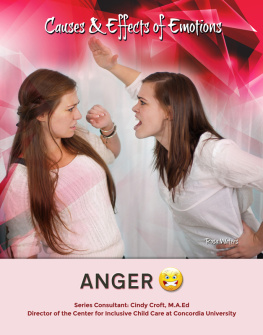
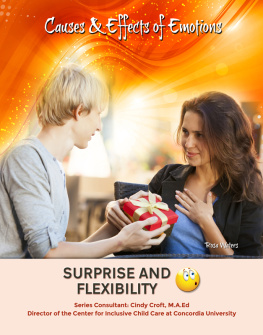
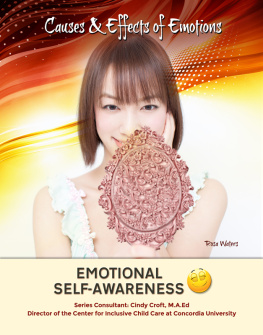
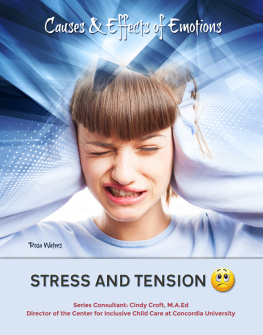
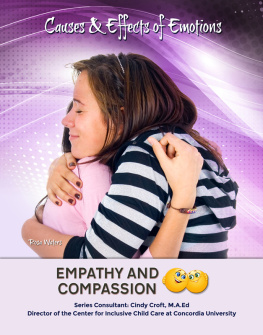
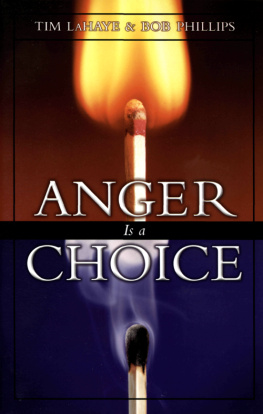
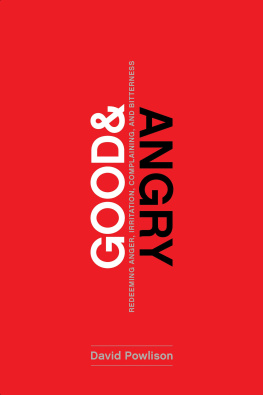


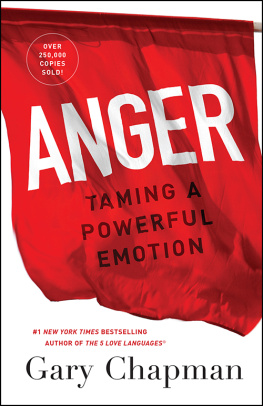
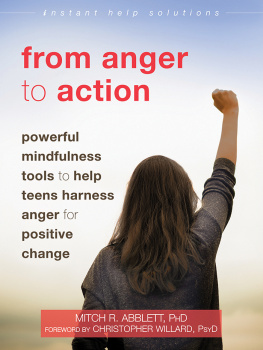
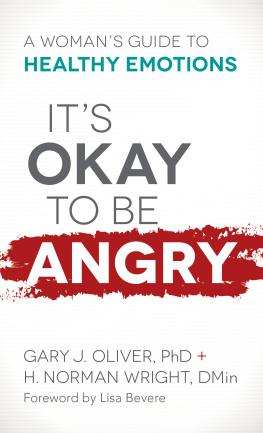
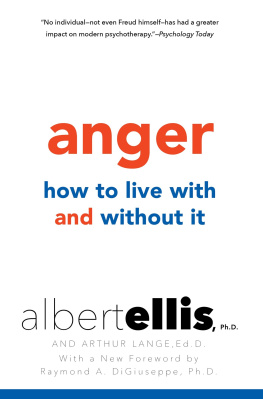
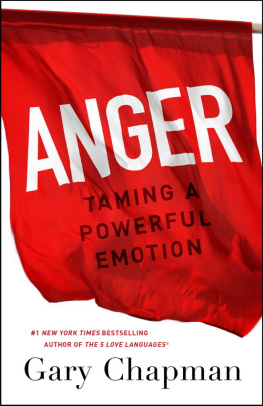

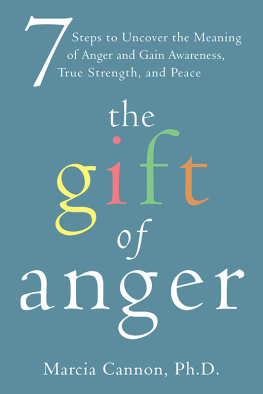





 evolved: Developed over a long period of time.
evolved: Developed over a long period of time.